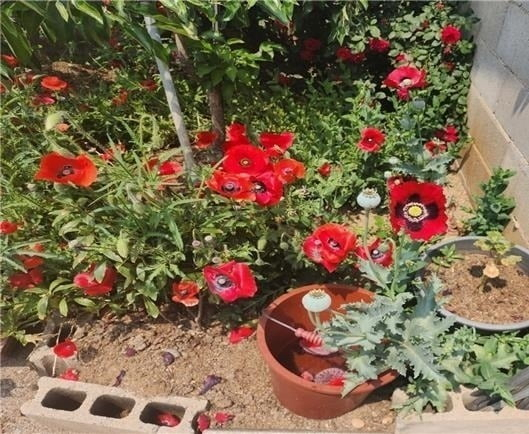Police on Thursday said it found some 40 opium poppy plants that seemingly have grown spontaneously at an apartment complex in Ulsan, 299 kilometers southwest of Seoul.
According to Ulsan Nambu Police Station, officials received a report from a resident of an unnamed apartment complex that flower which look like the poppies are growing in the flower bed. Officers dispatched to the scene confirmed that the flowers were indeed opium poppies used to produce opium, not the common poppies which they are often mistaken for.
Officials did not find evidence that suggested that someone deliberately grew the plants, and disposed of them.
 |
(Gyeongbuk Provincial Police) |
The opium falls under the category of the narcotics defined by Article 2 of the Narcotics Control Act, and growing the substance that can be used to produce it -- the poppies in questions -- can be punished by up to five years in prison or 50 million won ($37,667) in fine.
On Friday, police in the adjacent North Gyeongsang Province said it conducted an intense crackdown on cultivation of illegal substances from April 13 to May 13, pressing charges against 59 who grew an accumulated 7,000 opium poppy or cannabis plants. The accused -- most of whom were first-time offenders -- told officials that they grew the plants as medicine.
Some part of the country believe that opium poppies can be used as home remedy, effective in treating stomach aches. This belief has no scientific evidence.
Earlier this month, Gwangju police caught three -- 75-year-old and 58-year-old men and a woman in her 80s -- cultivating opium poppies in their homes. They claimed that they grew the plants to treat stomach aches.







